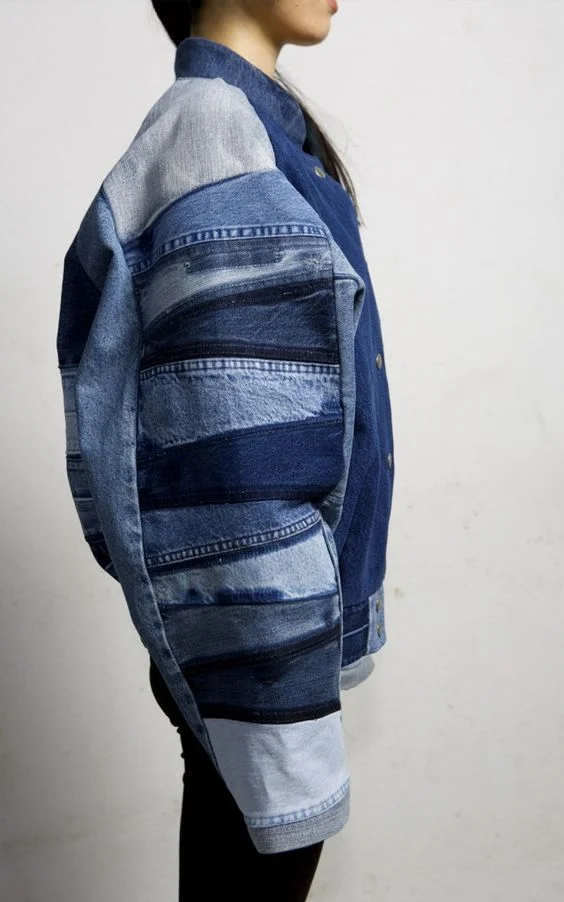Sustainable Fashion.... Where Is The Coverage?
This evening I was looking online searching for any new interesting angles that may have been taken on sustainability in the fashion industry.
As any Google fiend knows, the first port call was my Google search bar and was really surprised that for all the hooplah that fashion houses make about becoming more sustainable, the most recent news article regarding such issues was last published in 2015 by the Guardian.
The most recent article regarding fashion sustainability in the Guardian newspaper addressing what actions have been taken since the 2013 Rana Plaza collapse in Bangladesh that killed 1,134 people due to poor infrastructure and working conditions.
Whilst this is aligned with policies such as the 2015 Modern Slavery Act that requires business with a turnover of more than £36 million to account for human trafficking issues and labour condition across their supply chain, coverage of sustainability in the fashion industry remains limited.
I agree with the fact that some of you may put forward that it is difficult or unfair to form such an opinion without doing a deep search, after all I spent four months researching such issues for my thesis, I think that fashion houses should make it easier for the everyday person to know what actions they are taking.
This isn't to day that fashion brands aren't tackling growing social and environmental sustainability issues, with platforms such as the Ethical Fashion Forum showcasing a number brands and media outlets that are taking a stand against social and environmental injustices.
Recycled vintage denim by Berlin based brand Fade Out - a unisex clothing ad accessories brand made from up cycled denim
One designer that has particularly paved the way for fashion sustainability is Vivienne Westwood. Over the years Westwood has involved herself in a series of projects to tackle issues such as climate change, poverty, social injustices and animal rights using her fashion shows and campaigns as a platform (click here for more).
2011 Ethical Fashion Africa Campaign - aimed to empower female workers in Nairobi. Bags in this collection were made by women in the capital under fair working conditions and using disregarded materials.
But to what extent does this sense of ethical fashion set the foundations for future work in the field of sustainable fashion?
During Westwood's Ethical Fashion Africa campaign some claimed her actions were simply a facade to generate publicity through the exploitation of the poor conditions of others in what has been termed as 'poverty porn'. Although Westwood dismissed these claims, and her life long work on social and environmental issues suggests that this is not the case, to what extent do these value ring true for other fashion designers?
After reading an article on Not Just A Label which rings a similar tune to the message behind this post, I began to against question the degree to which fashion brand pursue sustainability ethics. Whether it is upon the basis that designers believe in sustainability values or whether each ethical campaign simply provides a media burst to draw attention to the collection rather than the messages that the fashion line supposedly upholds.
H&M Conscious Collection makes clothing from recycled polyester and organic materials to minimise environmental damage.
Mango's Committed Collection only uses environmentally friendly organic or recycled cotton and polyester.
It remains difficult to say because whilst brands like H&M endorse such campaigns, let us not forget that they were one of the brands involved in the Rana Plaza factory collapse and whilst the Swedish manufacturer was one of the first brands to sign the pledge to improve working conditions - the company has fallen short in delivering these promises.
This isn't to single out H&M as the only culprit as other fashion brands have been accused of similar hypocrisy as their promotion of fast fashion is in direct odds with their sustainability agenda. As fashion brands continue to grow, the consumer demand for collections results in the positive sustainability initiatives becoming increasingly negligible. Therefore posing the question of whether fashion brands can truly be sustainable due to the nature the industry and business.
Isla Fisher in Confessions of a Shopaholic is probably what all of us look like at the sight of bargain or new collection release
This leads us back to the original question, 'Sustainable fashion where's the coverage?' - it seems that the coverage is out there, with designers releasing collections with specific well to do messages. It's just that the coverage is, I suppose, short lived... with sometimes us as consumers caring more for the fad clothing of that political time rather than the long-term message that the clothing should represent.
This doesn't mean however that the battle is lost as there are brands that hold sustainability at the heart of their values (see previous post 'Look Good, Do Good') that constantly publise the work that they do. As consumers we play an extremely important role is what gets media coverage, and we shouldn't underestimate the power we have. If you want to support ethical/sustainable brands do it! Like their posts, comment on their website, give them feedback, recommend them to friends - it's only by carrying out such actions that we will see a difference in what is represented in the media and impact the long term effects we wish these messages to have.












